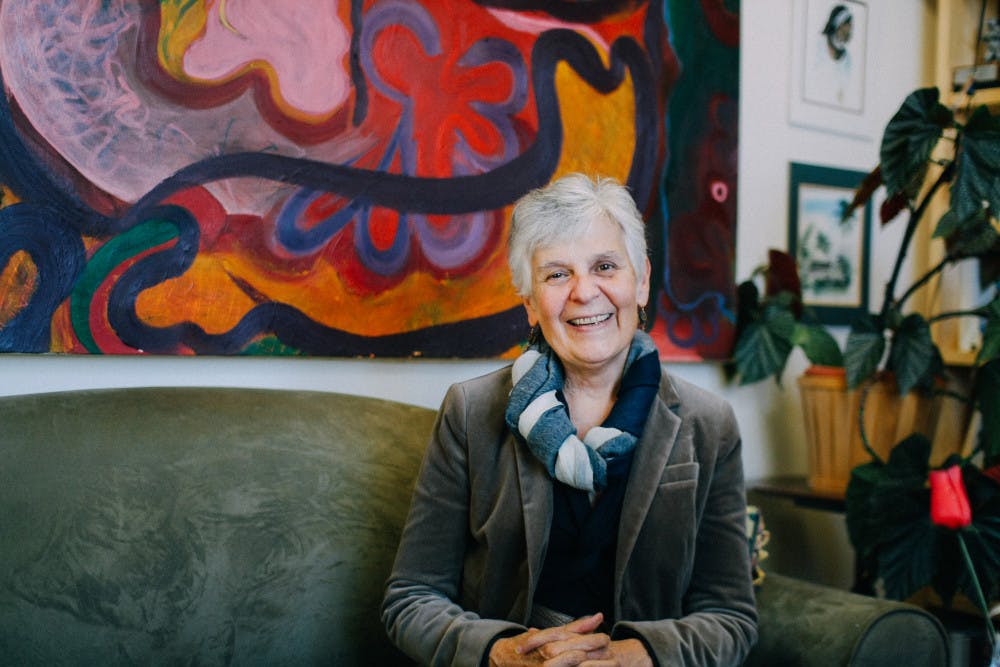The Inter-Religious Working Group kicked off with a four-hour inaugural meeting Feb. 29, facilitated by the Office of the Chaplains and Religious Life.
The IRWG is University Chaplain Janet Cooper Nelson’s attempt to delve deeper into issues surrounding religious tension and difference. The group hopes to increase accommodations for religious practice on campus and expand the co-curricular and curricular resources for religious exploration at Brown and beyond, Cooper Nelson said. The IRWG comprises students, faculty members and staff members and is run in conjunction with the Diversity and Campus Life Advisory boards.
The group marks a departure from the office’s earlier Multi-Faith Council, where student representatives from different religious organizations gathered to stay in communication with each other. “There was an informality about it, and I began to think that it needed to be more substantial,” Cooper Nelson said.
Cooper Nelson was heartened by the intensity of the response the program has received, she said. The 11 selected members took two full hours to introduce themselves and listen to each other’s narratives, she added.
“At Brown, religious life is on the margins,” said Leo Shiner ’19, explaining that he chose to apply to the IRWG in an effort to “gain a foothold” in the religious community on campus. The son of a university chaplain, Shiner benefitted from frequent exposure to his father’s interfaith gatherings at Colgate University, he said. “I learned to appreciate the value of religion and faith in people’s lives in an objective way,” he said.
Shiner found the way that religious students who identify as gay introduced themselves at the meeting to be particularly interesting, he said. There tends to be a perception that religion is antithetical to liberal values, and the way “they reconciled different parts of their identities” showed that the two need not be mutually exclusive, he added.
“What religion means is different for everyone,” said Elizabeth Carlson ’19, adding that she was struck by how every perspective was unique. For instance, the group included students who were religiously observant, and others who considered themselves culturally religious, she said.
“Culturally religious means you don’t necessarily practice the religion at all. You could be Jewish and atheist,” Carlson said.
Carlson considers the Jewish community to be central to her understanding of religion, she said. “Shabbat dinners are the highlight of my week,” she added.
“Those 3 a.m. discussions about whether God is real are great, but they are only a small part of what religion is about,” Cooper Nelson said, emphasizing that religion is also deeply entrenched in heritage, community and tradition. “There’s lots to be said about religion that isn’t about argument and debate, ” she said, adding that she chose to replace the word “faith” with “religion” in the group’s name for that reason.
One concern with the IRWG in its current form is that there are no people of color on the committee, said committee member Joshua Kurtz ’17. There are also no students who self-identify as belonging to South- and East-Asian spiritual traditions, such as Hinduism, Buddhism, the Baha’i Faith and Shintoism.
To combat this lack of representation, individual members of the group are seeking input from diverse voices by inviting students to discuss religion over coffee. At the end of the first meeting, Cooper Nelson handed all participants a notebook and a Blue State gift card. “I like to call it field inquiry,” she said.
“We’re trying to determine what is most helpful to people here,” Kurtz said.
The conversations will be confidential, Cooper Nelson said.
Committee members also hope that the IRWG will go on to address some of their own concerns.
“I would like to see religion more integrated into the Brown community,” Shiner said, describing a lack of religious consciousness in mainstream campus discourse.
As a religious studies concentrator focusing on eco-theology, Kurtz said that he hopes IRWG will also examine how religion engages with social justice work, particularly in light of the recent Janet Mock controversy.
“Religious illiteracy is a serious problem at Brown, in the United States and maybe even in the world,” Cooper Nelson said, adding that she envisions that the IRWG will affect change on a curricular level as well.
“As it stands, you can concentrate in areas like international relations and comparative literature without ever having taken a religious studies course,” Cooper Nelson said, adding that the IRWG and the Department of Religious Studies may develop an interdisciplinary concentration requirement for related fields of study.
Cooper Nelson also plans to institute semester-long study abroad programs designed to immerse students in different religious climates, she said.





